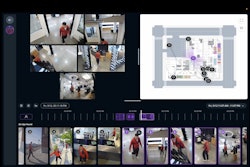
The manufacturing industry is protecting itself from increasingly sophisticated attacks as more organizations integrate artificial intelligence (AI) for efficiency, optimized processes, and enhanced automation, as outlined in LevelBlue’s 2025 Spotlight Report: Cyber Resilience and Business Impact in Manufacturing report.
“Cyber resilience is no longer optional—it’s becoming a strategic imperative for manufacturers in order to main customer and supply chain trust,” says LevelBlue chief security and trust officer Kory Daniels. “While it’s encouraging to see increased alignment between cybersecurity initiatives and business goals, the data shows that many organizations still face critical gaps in alignment. Corporate executive alignment and a proactive, adaptive approach are essential to staying ahead of rapidly evolving threats.”
Key takeaways:
· The findings reveal that manufacturing organizations expect a rise in AI-powered attacks, deepfakes, and synthetic identity attacks in 2025, however, many are not prepared for them.
· Only 32% of manufacturing executives say they are equipped for AI-powered threats, and just 30% feel their organization is ready for deepfake attacks. Simultaneously, organizations face an increase in distributed denial of service (DDoS) attacks amid rising geopolitical tensions, with only 37% of manufacturing executives reporting they are prepared for them.
· Data security and privacy are still the biggest challenges, with 54% of organizations reporting very low to moderate visibility into the software supply chain.
· In response to these threats, manufacturers are cultivating a cybersecurity-first culture by linking security initiatives directly to business strategy. As an industry, these organizations are taking actionable steps: 65% say leadership roles are now measured against cybersecurity KPIs, and 70% are educating the workforce about social engineering tactics.
· Research shows manufacturers are beginning to embed resilience into their innovation strategies, with more than half (55%) now allocating cybersecurity budgets at the outset of new initiatives. Another 69% report that an adaptive approach to cybersecurity enables them to take greater innovation risks.
● Significant areas of additional cyber resilience investments from manufacturers include machine learning for pattern matching (71%); cyber resilience processes across the business (69%); generative AI defenses against social engineering (64%); application security (67%); and enhanced software supply chain security (63%).


















